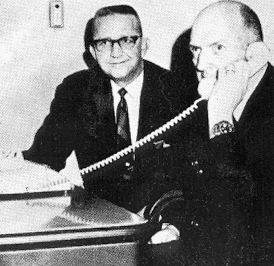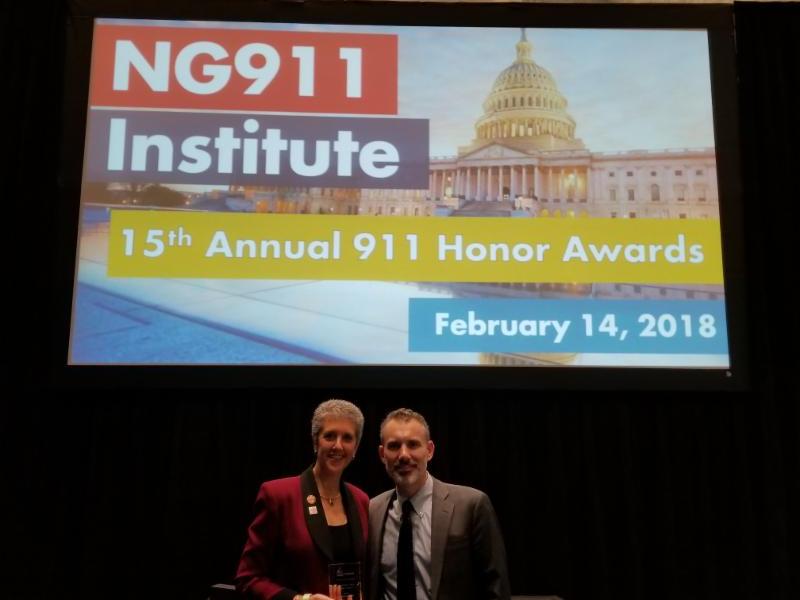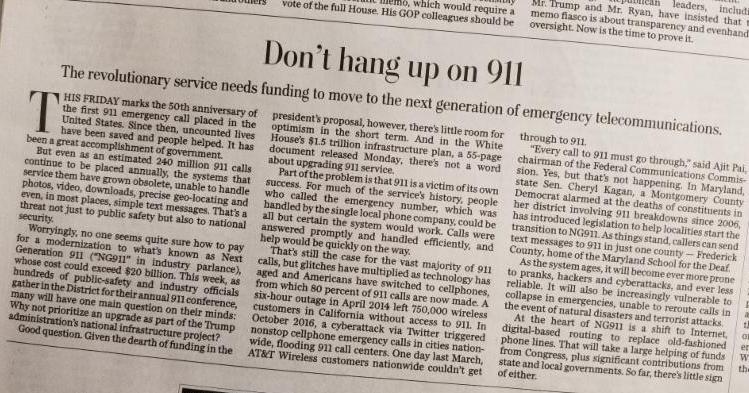I hope you had a happy Valentine’s Day, full of special plans with loved ones! As promised, this week’s email will focus on the five bills I have introduced to move our State to a modernized 9-1-1 emergency system. As you may know, I first became deeply invested in these issues because three people have died in my district following technical challenges.

 Close the Funding Loophole Now! Close the Funding Loophole Now!Even before we incur the cost of upgrading to NextGen911, our counties are experiencing extreme funding shortfalls. The $1 monthly fee that most residents and businesses pay for 9-1-1 now covers an average of less than 40% of the cost of providing service.
This $1 per month fee structure worked just fine when we only had landlines. As phones have proliferated, the funding has not kept pace. Many people have family plans for their cell phones, and our workplaces may use one primary phone line to handle all of their phone traffic. In each of those cases, those clients would still pay just $1 a month, regardless of the number of phones they use. As the number of people who can call 9-1-1 has continued to grow, the revenue to pay for it has remained flat or even declined.
I introduced SB1051 to close this funding loophole. It would more closely align our finances with our urgent needs. For those with one or two lines, there would be absolutely no change whatsoever. For those with three to five lines, it would be an additional one dollar per month. Even in tight times, I suspect that we would all happily pay a dollar a month to ensure that everyone in the family is safe. The fee is capped so that the largest companies could be served by emergency protection without being unreasonably burdened by costs.
I had this most urgently needed bill named in memory of Carl Henn, my friend and one of my constituents who died when 9-1-1 failed. We need to give our counties the funds to ensure that the next time we face a crisis, we can get the assistance we need quickly.
|
 National Award Winner! National Award Winner!I was deeply honored to have been selected by the Next Generation 9-1-1 Institute for their prestigious annual Government Leader award. I will continue to work with experts across the state and the country to save Maryland lives. I was grateful to have many local 9-1-1 experts and members of Congress who attended the ceremony on Capitol Hill last night.
|
 |
 |
 |
|
Bill Ferretti and Tony Rose, heads of 9-1-1 in Montgomery and Charles County respectively, attended the award ceremony.
|
Rep. Dutch Ruppersburger (D-MD) is a dedicated member of the NextGen911 Caucus in Congress. | Steve Souder is a well-known national expert on 9-1-1 who has guided me on these issues. |
9-1-1 is perhaps the most basic of government services. Its successes and failures affect the safety of every individual in a community, and its failures are catastrophic. When 9-1-1 fails, people die. That’s why I’m working on all of these bills.
I am committed to keeping you informed throughout the 2018 Session. You can also follow me on Facebook, Twitter, and Instagram for photos and posts. Check my website for information about internships, Senatorial Scholarships, and more. And, you can always send questions or comments to me via email.
